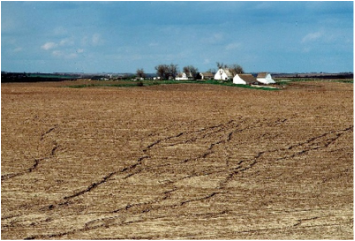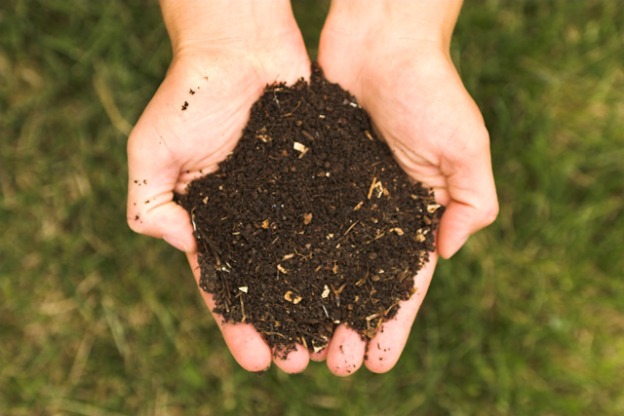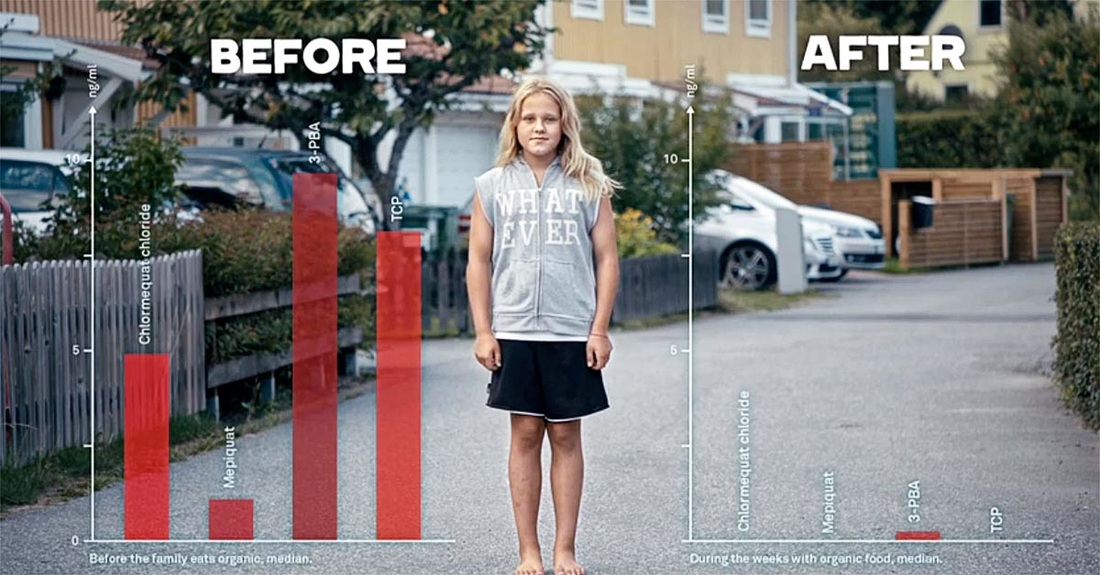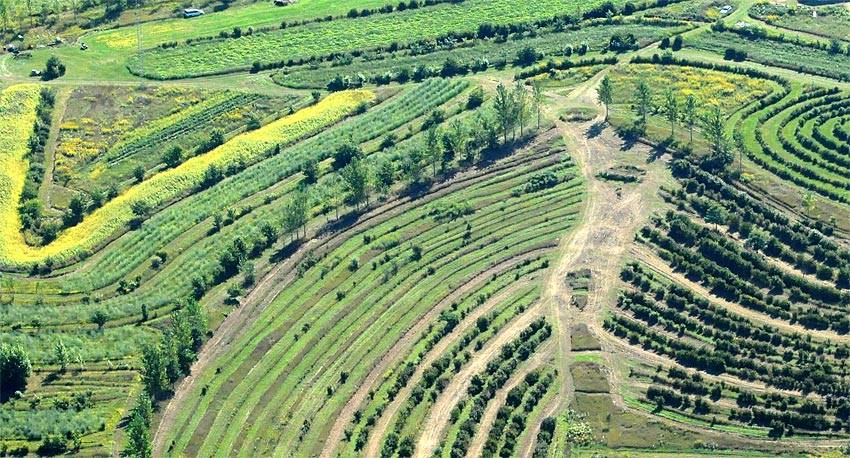|
I’ve spent most of my life intentionally limiting my vocabulary. I’ve long resisted the use of words found on lists with amortization, refinancing, or debt consolidation. I remember, as a child, hearing my parents use these words. I only knew that they were somehow related to money.
Limiting my use of such words was quite easy. I lacked a working definition for most of them. I didn’t know what they meant and hoped the need would never surface. Despite my long held hopes, I now find myself boring my wife with talk of interest rates, balloon payments, and tax consequences. The bright side of my expanded vocabulary is the twenty acres of land we now own (pay taxes on). Just over three years ago, we returned from two months in South Africa with $20 to our name and a pocketful of Swazi coins. Our journey from there to paying property taxes began with a major shift in my attitude toward money. If money were a river, it would arguably be the largest, strongest one in our society. My past relationship to money can be equated to a child trying to dam that river by stacking rocks gathered from the bank. I didn’t like the way that river was flowing and I managed only a meager effort to resist it. Many things I have learned have led me to a different approach. Continuing with the metaphor, I now take a "mill" approach. Instead of resisting the flow via dam, I seek to redirect a small part of it to accomplish some good in the way a mill uses flowing water to grind flour or cut lumber. The first step in my transition from dam to mill was acquiring a credit card. I became convinced that borrowing money might be helpful in accomplishing our goals. Anyone who would lend us a substantial sum of money would likely want to take a look at your credit score. One’s credit score is based on one’s involvement in what amounts to a game, the rules to which have been arbitrarily established by the agencies that issue the scores. You, like me, might think that having never needed to borrow money would work in your favor when you finally do. I can tell you for certain that is not true. To learn the rules of this game, have a look HERE. Until acquiring a mortgage, a credit card was our sole tactic in establishing and improving our credit scores. The reason being that it offered us multiple benefits without us having to alter our spending habits. I’ll describe the benefits later. As a side note, I should mention the head start that Bailey had in regard to her credit score. In high school she carried around a credit card associated with an account on which her mom was the principal cardholder. Bailey’s use of the card was limited to emergencies, while her mom used it more often. Over time, the responsible maintenance of a low balance on the account allowed Bailey’s credit score to rise with no effort on her part. Additionally, after high school, Bailey’s parents took out small student loans in her name that they quickly paid off. High fives to my in-laws. I would encourage all parents to investigate ways they can help give their children’s credit a kick-start. Like Bailey’s parents, if you find yourself able to maintain a credit balance low enough to positively impact a credit score, consider adding your child as an authorized user. Having said that, some parents should spare their children any association with their credit history. Having no credit history myself, and very little income, our first card came with a $250 limit. An all out shopping spree would have been manageable. The card was used for routine purchases, such as groceries. We were careful to pay our bill on time and never carried a balance. The next chapter in our credit saga began when I became officially employed. Until starting as a barista at Stumptown Coffee, I had pulled in enough income through working odd jobs. Living in the area where I had grown up offered the advantage of a large network of family and friends. Among this network I sought out most of my work. While not lucrative, I did gain a lot of skills. At times I would put an ad on Craigslist, offering my services as a handyman. I once had a man hire me to install siding on his house. While I stood looking at the house, trying to imagine the scope of a job I had never even attempted, he asked, “You ever do siding before?” “Never”, I replied honestly. “You’ll figure it out.” Transitioning to more a conventional form of employment, in addition to putting us above the poverty line for the first time, allowed us to secure a more beneficial line of credit. After thoroughly researching the options, I settled on the Barclay Arrival Card. For those who are interested, I’ll describe some of the reasons behind that decision. Bonus: For spending at least $3000 in the first 90 days, were able to accumulate $400 in reward points per card. As we each had our own card, we found ourselves with $800 in points. Because there are some large expenses, such as rent, which you can’t usually pay with a credit card, the frugal among you may find it difficult to spend the amount necessary to get the bonus points. Some creativity may be required. Flexibility: You’ve probably heard credit rewards referred to as miles. I’m not sure how rewards came to so intimately connected with travel. Even the card we chose offers superior benefits when redeemed for travel related expenditures. With that fact in mind, we chose the card we did because it was not connected to any one particular airline or hotel chain. While I don’t have any experience with it, I have read that the rewards offered by cards connected as such, can be quite difficult to redeem. Apparently, airlines will limit the dates and number of seats available on a given flight to travelers using rewards. In the case of the rewards offered by our card, they are applied after the fact as a credit on our bill. Thus, we are free to make any purchase we want, and redeem our reward points when we pay our bill. But, as I alluded to before, our reward points are worth twice as much when redeemed for travel related purchases. With that in mind, we have found creative ways to maximize those benefits. For example, Bailey rented a cabin for the weekend to act as the setting for a nutrition workshop she hosted. Because vacation rentals are travel related, we were able to cover that entire portion of the workshop expenses with reward points. Rate of Reward: At 2% (when redeemed for travel related purchases) the card we chose offers one of the highest rates of reward I could find. On top of that, when redeemed for travel related purchases, we get 10% of our points back. There are many websites that highlight and compare the available cards. One such website is nerdwallet.com. A simple search will lead you to the others. No matter what your goals, improving your credit score is probably a worthwhile endeavor. For more information along these lines, I recommend the first chapter of Ramit Sethi’s book “I Will Teach You To Be Rich” called “Optimize Your Credit Cards.” It can be read for free HERE. I like the subtitle to the chapter: how to beat the credit card companies at their own game. Thus far, we have accumulated over $1,500 in reward points and not paid a single cent of interest. We're definitely ahead in the game at this point. Keep an eye out for part two. There I will tell the story of how we managed to save $50,000 in three years. -Johnny Read Part Two HERE.
0 Comments
Why do I want to be a Nutritional Therapist and Farmer?
Because the fullness of being human cannot be expressed with out the fullness of nutrients, and the fullness of nutrients cannot be brought forth with out care for the soil. We’ve lost our ability to see creation as something sacred. We say we love the mountains, the rivers and trees, but these are words we only speak. We take photos to capture the beauty but never arrive at truly understanding our deep connectedness with what is not just one thing, soil simplified and defined as “dirt”, when in reality soil is life, and soil is death, the perfect way to reconcile those two things, which feel so distant from one another. When we began hiding from death, putting up walls between us and the slaughter of animals, forgetting that it was necessary for our living, we disconnected completely so that we didn’t have to deal with it’s weight. We simplified everything and left it in the hands of a few men, people who don’t know how to look past their greed and feed the world in a way that brings vitality to every person’s body. Our food system is made of money, it seems it really does grow on trees. Why do I want to be a Nutritional Therapist and Farmer? Because I’ve lost family members to Cancer and Heart Disease, which could have been prevented, had we known how to eat with intention. People tell me they don’t have the time for this way of life. But I don’t have time for disease, which steals life away. I’ve watched disease steal life away from everyone around me, including myself. I’m not scared of death, for we all must pass over that threshold, but we’ve been given this space in time to live out on earth and we are doing it in the worst way possible. We are degrading everything. Making it un-inhabitable. You cannot say you want to feed the poor and also buy food from monoculture, pesticide laced farming, which perpetuates poverty. We’ve lost the ability to do radical accounting, we only see things in dollar signs, who will account for the acidifying of our oceans or the dead soil they continue to rape with corn and soy? I know that this food and this pollution killed my family members before their time. And I know it is sucking the life out of everything. Why do I want to be a Nutritional Therapist and Farmer? Cause this is ridiculous. We no longer know what it feels like to be human. We are a sick and dying generation. I say, “who wants help” and everyone comes running. We work long de-humanizing jobs under florescent lights, eat packaged food that’s more traveled than we are and fill our bodies with toxins. At this moment in time, we are overpopulated: 99.3% of Americans eat food, and only .7% are farming, and most of that is ruled by Monsanto. There’s no need to worry about overpopulation, though, it’s projected that if we keep eating this way and destroying our soils we’ll all be infertile by 2050 anyway. That’s the direction we are going. This is why I want to be a Nutritional Therapist and a Farmer. Someone has to do it. We need to turn that .7% into something larger with small, locally minded farms. We need to bring the vitality back into our bodies. “No serious investigation into nutrition can be made without a thorough knowledge of the principals of soil health and its relationship to the food produced.” -Bernard Jensen Just like we use Fat, Protein and Carbohydrates as our macronutrients, plants have their own. So, what nutrients do plants need? carbon, oxygen, and hydrogen, as well as nitrogen, phosphorus, and potassium. The first three plants get from the air and water which are then processed via photosynthesis. The last three come from the soil. (that is if it's healthy soil, like the second photo above) Secondary nutrients: Calcium, Magnesium, and Sulfur. Micronutrients: Boron, Chlorine, Cobalt, Copper, Iron, Manganese, Molybdenum, Nickel, Silicon, Sodium, Zinc, and Vanadium. UNFORTUNATELY modern farming practices are void of most of these nutrients. Some people ask, "what is the difference between Organic and Non-Organic fruits and veggies…well, sometimes there is not much. Organic basically means that pesticides aren't used on them, which is a very good thing, but it says nothing of the nutrient composition. Most organic farms, I assume, have healthier soil then non-organic but I'm sure there are some with soil like the first picture above. I buy Organic whenever possible so I'm not ingesting toxins, but my second goal with fruits and veggies is to buy local from a farmer who cares about their soil like their own body. It's interesting, when the soil is healthy there is no need for pesticides and other toxins. Healthy soil self regulates. Duh! Why do we always want to fight against nature instead of working within it's systems? Oh, that's right, MONEY! It's always all about money, isn't it? Before and After: Toxin load in the body when eating Non-Organic and Organic. This is one of the reasons Johnny and I want to start a farm. Johnny is trained in Permaculture (sustainable agriculture, basically) and has studied a lot about soil health. It make us the perfect team because he can make sure the soil is healthy so that the food we are eating and sharing with others is nutrient dense. If our soil is depleted then we also will be depleted. You can see it. We have an abundance of food and a lack of nutrients. This is why you see so many people with health issues that eat a so called, "healthy" diet. If our food doesn't get the correct nutrients for their growth then we won't get the correct nutrients for our growth. A little exert from: http://www.natural-health-information-centre.com/depleted-soils.html "Why is the soil depleted? As long ago as the 1920s, the British and US Governments were warned by nutritional experts that the soils on which most crops were grown were so deficient in mineral content that the foods grown on them contained less than 10% of the vitamins and minerals they should have. The intention of these reports was to highlight the problem so that remedial action could be taken to remineralise the soils, leading, once again, to naturally healthy fruits and vegetables. Unfortunately, neither Government took any action to correct this problem, and as a result, which has been intensified by modern intensive farming methods, the fruits and vegetables not only have little or no vitamin and mineral content, but they are routinely sprayed with such a broad selection of chemicals that they are actually poisonous. How can plants grow without vitamins and minerals? Good question. Most plants require only three nutrients to grow, namely nitrogen, phosphorus and water. In the presence of these nutrients, virtually all plants will grow into what appear to be healthy, nutritious adult specimens. However, if the minerals found in their natural habitat are not present, such plants and their relevant fruits and vegetables will be nutritionally "empty". As a result of this, these plants are less able to defend themselves against natural predators and are susceptible to insect attack and damage from viruses / bacteria. In order to control this, insecticides, antifungals, antibiotics, pesticides and dozens of other categories of chemicals have been designed to limit the damage done to plants by their natural enemies. Unfortunately, many of these chemicals have not been properly tested to assess their effects on either plant or human health, and virtually none have been tested in combination to assess their combined effects. The result is that most fruits, vegetables and other plant-based foods are so contaminated with a huge variety of chemicals, and so deficient in nutrient content that they actually do more harm than good." {I've had people say to me, "we have to farm this way in order to feed the billions of people on this earth! But, if we farm this way, we will only be able to feed people for a short amount of time before we totally deplete the land of all it's vitality and all it's nutrients. Wouldn't we rather farm in a way that cares for the soil and can continue on for generations? We are literally running ourselves into the ground.} "When the Earth's population was smaller people could move from one place to another and give soil a chance to regenerate. But now, with more than 6 billion people on the planet, that option no longer exists." -David R. Montgomery So…THE HEALTH OF OUR SOIL IS IMPORTANT! We need to care about this and support farmers who are caring for their soils! Here are a few {large scale} farmers doing rad things! (I wish this is how all farms operated) 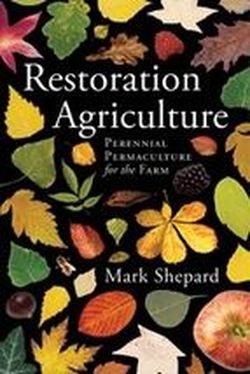 Mark Shepard: New Forest Farm "In 1995, Mark Shepard and his family moved to the hills of Southwest Wisconsin to start a new kind of farm. Instead of just growing annual grains, vegetables, or livestock, they wanted to establish a perennial farm, modeled on native ecosystems, to produce abundant food, fiber, and fuel while restoring critical ecosystem services. New Forest Farm is now one of the most developed and productive perennial farms in North America - growing abundant crops and livestock, while sequestering carbon, building soil, recharging groundwater, and enhancing wildlife habitat and biodiversity. " www.newforestfarm.net 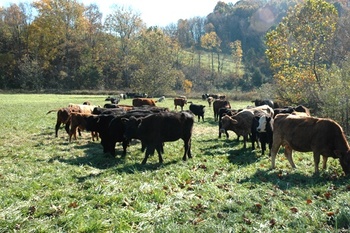 “This magical, marvelous food on our plate, this sustenance we absorb, has a story to tell. It has a journey. It leaves a footprint. It leaves a legacy. To eat with reckless abandon, without conscience, without knowledge; folks, this ain't normal.” ― Joel Salatin, Folks, This Ain't Normal: A Farmer's Advice for Happier Hens, Healthier People, and a Better World 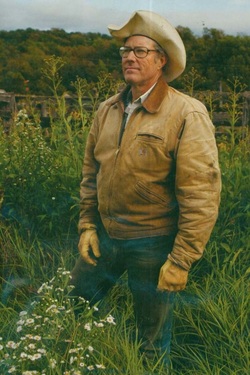 Joel Salatin: Polyface Farms Disregarding conventional wisdom, the Salatins planted trees, built huge compost piles, dug ponds, moved cows daily with portable electric fencing, and invented portable sheltering systems to produce all their animals on perennial prairie polycultures. Today the farm arguably represents America’s premier non-industrial food production oasis. Believing that the Creator’s design is still the best pattern for the biological world, the Salatin family invites like-minded folks to join in the farm’s mission: to develop emotionally, economically, environmentally enhancing agricultural enterprises and facilitate their duplication throughout the world. The Salatins continue to refine their models to push environmentally-friendly farming practices toward new levels of expertise. www.polyfacefarms.com “How much evil throughout history could have been avoided had people exercised their moral acuity with convictional courage and said to the powers that be, 'No, I will not. This is wrong, and I don't care if you fire me, shoot me, pass me over for promotion, or call my mother, I will not participate in this unsavory activity.' Wouldn't world history be rewritten if just a few people had actually acted like individual free agents rather than mindless lemmings?” ― Joel Salatin, Everything I Want to Do Is Illegal: War Stories from the Local Food Front We really do have the power when we vote with our money. Not only will we affect change in the soil, but we will affect change with the health of all organisms, animals and people. Food is the base of life, and we're losing it. Buy local, gain knowledge and support the soil. |
Details
Bailey Patrice & Jonathan DavidCategories
All
Date
December 2017
|
